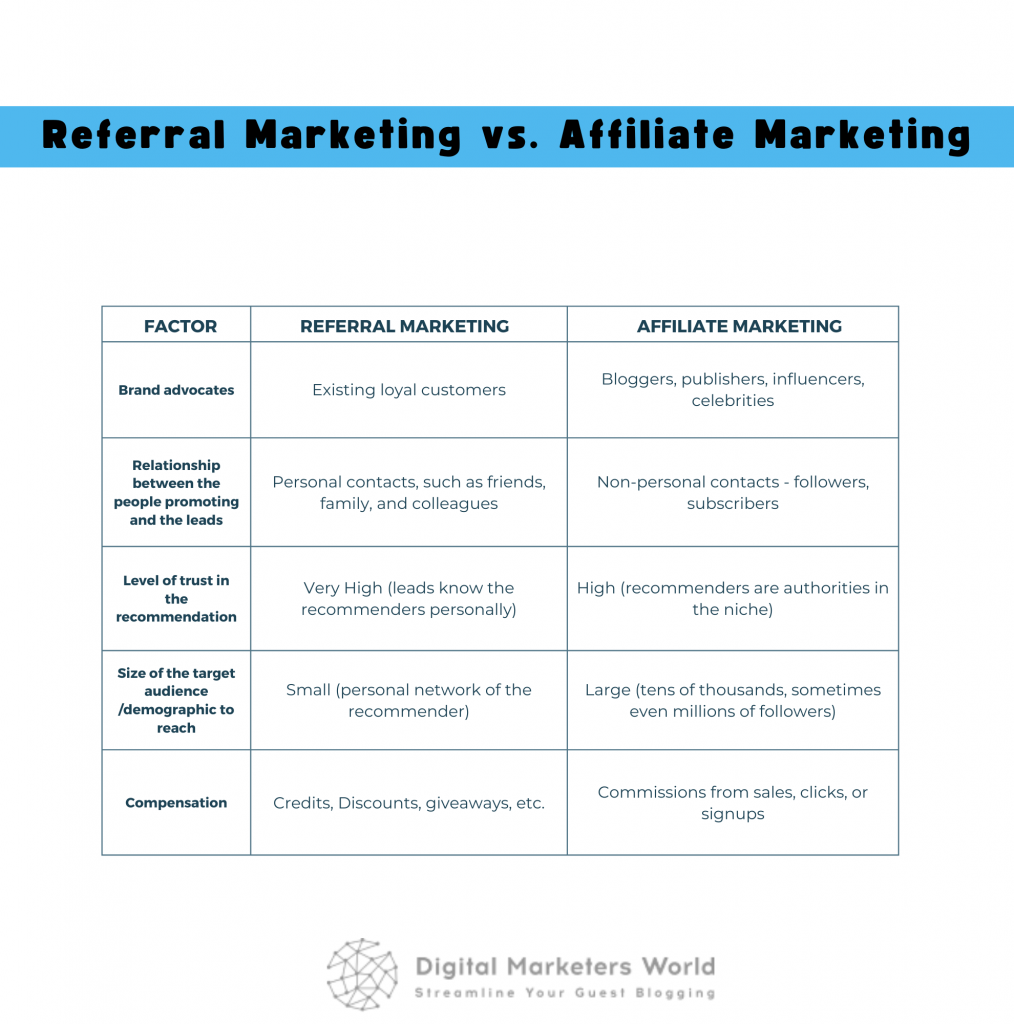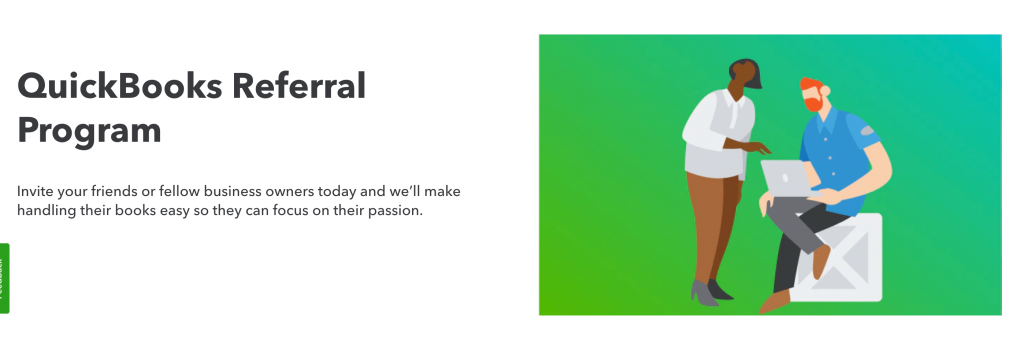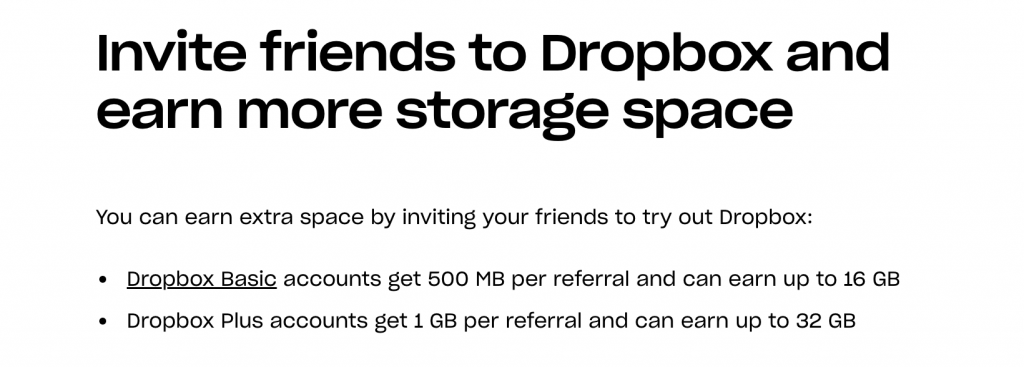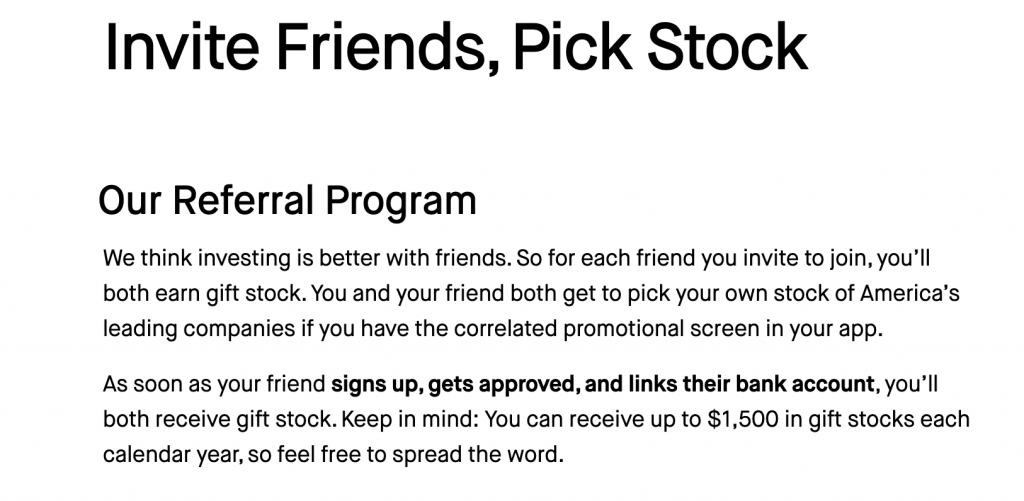What Is Referral Marketing? [with Strategies, Examples & More]
Recommending your favorite products or services to friends and family has been with us since the dawn of time.
When businesses started realizing the power of these endorsements, they quickly came up with organized processes to manage them. This is how referral marketing was born.
We have an ultimate guide today that will be your one-stop shop for all that you need to know about referral marketing.
What is Referral Marketing?
Referral marketing is a strategy to take advantage of the word-of-mouth recommendations a company’s existing customers make to their personal networks to drive customer acquisition and sales. A referral marketing strategy helps businesses manage and scale these recommendations to increase their effectiveness.
Referring products or services to friends is much more common than you could imagine. There are around 2.4 billion conversations about products and brands every day in the U.S. alone. And to profit from this, businesses create referral programs to encourage people to recommend their products.
Some of the most common niches where businesses use referral marketing include fashion retail, B2B software, and high-margin items, such as TVs and electronics.
What is a referral program?
A referral program is an organized process where companies reward existing users if they recommend the company and its products to their family, friends, and others in their personal network.
These referral rewards are most commonly:
- Gift cards, which include both the company’s own gift cards or the ones from other stores (e.g., Amazon or Steam gift cards).
- Discounts and credits for the products and services of the company.
- Free products and swag, including branded t-shirts, bottles, etc.
While the idea behind referral marketing is clear, you might still want to ask what these recommendations exactly look like. For that, let’s move on and see what referrals are commonly used in this marketing discipline.
5 types of referral marketing
Recommending a product to your friends can take many forms – everything from a watercooler conversation to sharing URLs.
Referral marketing takes a more organized approach to these recommendations by grouping them into five distinct types that we can see below.

Now let’s understand what each type means.
- Direct referrals: when your potential customers get a recommendation from someone (who is your customer) they know personally.
- Email referrals: when you use email as a channel to ask for referrals and encourage your customer base to refer their friends.
- Incentive-based referrals: when you offer rewards to your customers who have referred your brand to their friends. A great best practice is to offer incentives to both the person who made a referral and the new customer that joined.
- Referrals from reviews: when your customers write reviews about your products, and these reviews serve as a recommendation for others to try your products.
- Social media referrals: when your customers use social media platforms (e.g., LinkedIn or Facebook) to share your content and recommend your services or products.
With the types of referrals clear, too, we can now focus on the processes and tools that marketers use in their referral marketing programs.
How Does Referral Marketing Work?
As a strategy for digital marketers to attract leads, referral marketing relies on several key factors, namely:
- Happy customers, as you need your existing customers to love your company and your product if you hope they will refer their friends to come and try it.
- Attractive incentives, as even if you have satisfied customers, they might still require a bit of a push from your side in the form of rewards to actually start promoting you.
- Great onboarding, as when the new customers come and start using your product, you will need to meet their expectations with a great customer experience.
Now that you have an understanding of what it is, you might still be unsure about the value of referral marketing. This is what we have covered for you in the next section.
Why is Referral Marketing Important?
If we were to answer this question with a single word, it would definitely be “trust”.
Trust is the foundation that referral marketing relies upon. In a world where every company and product tries to grab your attention, consumers find themselves confused and unable to differentiate legitimate product promotions from empty advertising.
This is why people rely heavily on the opinions of others, as it increases the trust in the product. This point is especially valid when the person recommending is someone you personally know (92% of people trust these recommendations), and you are confident that they will never refer a bad product to you.
To further solidify our point, here are several statistics supporting it:
- Word-of-mouth serves as the main reason affecting 20-50% of all purchase decisions.
- According to Nielsen, for consumers, the likelihood of buying a product increases by 400% when a friend gives them a recommendation.
- Referred customers have higher lifetime value (LTV) too. Their LTV is 25% higher compared to non-referred customers.
To conclude, referral marketing campaigns look like a great idea. But is it not the same as affiliate marketing? Although they look alike, there are key differences between affiliate and referral marketing.
Coming up next, we will analyze them both and see the points of contrast between them.
Referral Marketing vs Affiliate Marketing
The fundamental difference between referral and affiliate marketing is that the first one targets its existing customers to recommend the product to their personal connections, while the second one targets influencers who use their content to promote the product to their audiences.
For a better understanding of these differences, let’s compare referral marketing to affiliate marketing side-by-side.

As we can see from the table above, despite sharing the same concept of recommending a product to someone, referral marketing and affiliate marketing are two very different approaches.
To continue making referral marketing clear to you, let us also speak a bit about all the benefits you can get from implementing it into your marketing plan.
6 Referral Marketing Benefits
We have already mentioned the primary benefit of referral marketing, which is the level of trust between the people recommending and your potential leads. But that was not all, as there are plenty of more advantages of referral marketing.
We have filtered out six of the most important ones for you below:
- Increased customer retention rate: by asking your customers to refer their friends, you are effectively increasing their commitment to your product and thus, contributing to their retention rate.
- Higher customer engagement: the process of gathering customers who will do referrals for you assumes that you are directly communicating and collaborating with them, thus increasing their engagement level with you and your product.
- Increased brand awareness: when your customers promote your products, their network trusts their opinion, which increases your brand’s reputation in their eyes.
- Better reach: if you have the right incentives that motivate your customers to promote you, they will recommend you to their acquaintances and social media friends, helping you reach thousands of people.
- Acquisition of trusted customers: with referral marketing, new customers join you with a high-level trust in your company and brand. These trustworthy recommendations give you a better conversion rate, and it is much easier to retain such customers compared to others.
- Increased customer lifetime value: as a continuation of the previous point, the customers you can retain also have higher lifetime values.
To sum up, referral marketing comes with a considerable list of benefits and reasons to add this strategy to your marketing stack.
But is it perfect? The answer is No, as there are several downsides to referral marketing, too, that we will discuss next.
3 Referral Marketing Disadvantages
That is right – even though referral marketing is an effective strategy, it is not free of shortcomings. Fortunately, there are not too many of them. Here are the main three:
- Word-of-mouth marketing can be slow: although personal recommendations perform great, it takes a while for your customers to trust you enough to refer to their friends, and these friends will take a while to actually visit you and purchase something.
- There’s a possibility for negative feedback: unlike positive feedback, the negative one spreads like wildfire. An unhappy customer will tell 9-15 of their friends about their experience. Thus, with referral marketing, you need to be careful not to leave anyone disappointed with you.
- Can be hard to track: as most of the recommendations happen outside your area of control (e.g., in personal chats or around the water cooler), it is quite hard to keep track of the people who have joined you thanks to a referral.
There are not too many downsides to referral marketing. Moreover, these are risks that you can mitigate with a well-executed referral marketing strategy.
Speaking of the strategies, our next section will cover a couple for you to increase your chances of success.
5 Referral Marketing Strategies that Work
As a digital marketer, you can take a creative approach to your referral marketing program. Maybe you decide to make personalized gifts to the referrers or do something entirely different. All is up to you and your creativity.
Nevertheless, there are some tried and tested best practices to increase the effectiveness of referral marketing. We have five of them for you here.
Strategy #1: Send personalized emails
Despite what many may think, email marketing is alive and doing well (in fact, 77% of people prefer to get marketing content via email).
Thus, it is natural to consider taking advantage of email for referral marketing, too (we have some inspiration for you on emails, check it out). In particular, it is a good practice to send personalized emails (here’s a guide on how to personalize emails for you) to your existing customers and let them know about the referral program you have launched and ask them to join it.
Strategy #2: Harness the power of social media
Up next is another marketing channel that can perform quite well for referral marketing – social media.
The reason is that people love to share their thoughts with friends on social platforms, including their recommendations of products and services.
What can you do to take advantage of this? Run a referral program that is social-friendly. It means that you can have engaging post content along with special referral links that people can share on their social media pages, and you can work on the OG titles and images to make them appear great on the post.
Strategy #3: Promote your program on your website
You probably already spend significant resources to bring traffic to your website and retain existing users. So why not promote the referral program you have created on your site and take advantage of this traffic and users?
With some help from your copywriters and content marketing team, you can talk about your program on your homepage, on the profile pages of your users, on your checkout and landing pages, and elsewhere. Just be sure that you comply with privacy rules (e.g., take care of GDPR, cookie consent, etc.).
Strategy #4: Use the “gift the new customer” tactic
With this marketing tactic, you are not only motivating your current customers to promote you by offering them rewards, but you are also increasing the motivation of the new leads to join after the referral by offering them special incentives, too. In other words, you’re creating a win-win situation in your referral process.
These referral incentives can be similar to the ones you give to referrers – discounts, coupons, and gift cards.
Strategy #5: Create a rewards program
Sometimes you might want your customers to refer your services to more than one person.
This is where a well-prepared rewards program comes into play. If you want to encourage your customers to keep referring you, you can offer them larger and better incentives based on the number of referrals they have made. One notable example is Tesla which gave you a car for free if you referred a specific number of people.
With the best practices behind us, too, we will solidify all of what we have learned with several notable examples of referral marketing.
3 Referral Marketing Examples to Inspire You
As already mentioned before, when it comes to making creative and successful referral programs, the sky is your limit.
But in case you are not sure where to start, these three examples are here to inspire you.
Example #1: QuickBooks
QuickBooks is online accounting software that has done a great job with its referral program.

In their program, they are offering a $100 reward to the referrer and a 50% discount for the first 6 months to the new user.
But other than that, QuickBooks has also made it easy for you to refer over email and social media with their one-click referral buttons on the program page.
Example #2: Dropbox
Dropbox, the popular cloud storage platform, is another role model when it comes to referral programs.

Their program stands out with its clever use of the incentive, as they are offering extra storage space for each person who has signed up from the customer referrals.
They also give extra storage if the lead becomes a paid user with Dropbox Plus.
Example #3: Robinhood
Robinhood is a financial and investment platform that takes a creative approach to referral programs.

The company will gift you actual stocks if you refer friends and they sign up and verify. Robinhood commits to gifting you up to $1500 in stocks for each calendar year.
Now Over to You
Referral marketing is the modern and organized version of the ages-old “recommending something to a friend” approach. It takes advantage of the superior authenticity and trust in these types of recommendations to attract high-quality leads and ensure a high return on investment in your marketing efforts.
This guide is one among many we have on our blog, feel free to check them out too.

Sona Kalantaryan is a senior digital marketer with a creative past. Big fan of high cinema and well-optimized landing pages. She authors guides by sharing the best practices and does it the right way!
